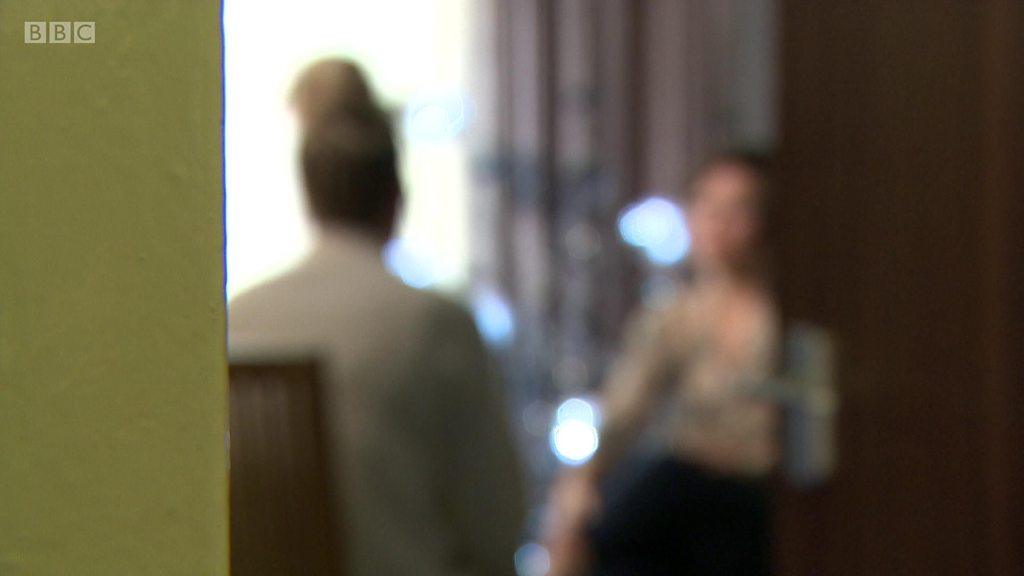Domestic abuse: 10% of young women affected - ONS
- Published

More than 10% of women aged between 16 and 19 in England and Wales say they have experienced domestic abuse in the past year, research suggests.
The Office for National Statistics' annual report on domestic abuse, external says they are the group most likely to be victims of it.
Women in their 20s and early 40s are also vulnerable, figures suggest.
About 7% of men who are still in their teens have also experienced it, according to the data.
Domestic abuse includes non-physical abuse, threats, force, sexual assault or stalking by a partner or family member - the most common of which is abuse by a partner.
The report pulls together data from the police, the government and victim support groups.
The latest Crime Survey for England and Wales for the year ending in March shows about 1.2 million women and 713,000 men reported being victims of some form of domestic abuse.
However, a large proportion would not have gone to the police.
'Great courage'
The police, meanwhile, recorded 1.1 million reports of domestic abuse over the same period, which probably includes repeated instances of abuse against the same victim.
Of these reports, 488,000 were recorded as crimes and fewer than half resulted in an arrest.
Of the domestic abuse cases referred to the Crown Prosecution Service by police, just under three quarters (72%) resulted in a decision to charge.
And of the cases that went to court, 76% led to convictions.
The CPS says victims failing to turn up to court and retracting their statements were behind about half of all the unsuccessful prosecutions.
Katie Ghose, of Women's Aid, said involving official bodies took great courage because many victims were worried they would not be believed, were not given the space to make the call or feared repercussions from their abuser.
She said criminal cases should not rely solely on a victim's evidence to see it through to prosecution.
Instead, police officers should gather evidence from the scene, as they do with fraud, burglary and traffic offences.
'Postcode lottery'
The policing areas which saw the highest number of domestic abuse incidents and crimes last year were Durham, Cleveland, Gwent, South Wales and London.
Cheshire, Dyfed-Powys, Surrey, North Yorkshire and Thames Valley saw the least, the report found.
It also looked at the number of refuge beds available for victims, which Women's Aid said had become a "postcode lottery" because of local authority funding cuts and poor commissioning practices.
Wales has the most with 10 bed spaces for every 1,000 domestic abuse victims. South-west England has the fewest with two per 1,000 victims.
The ONS says its analysis of the figures indicates a gradual downward trend in levels of domestic abuse.
Alexa Bradley, from the ONS, said: "Domestic abuse is a particularly difficult problem to tackle, not least because victims may be reluctant to report abuse or to support action against their abusers."
- Published22 November 2017

- Published1 November 2017
